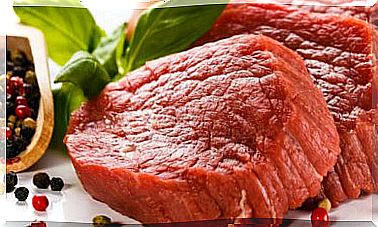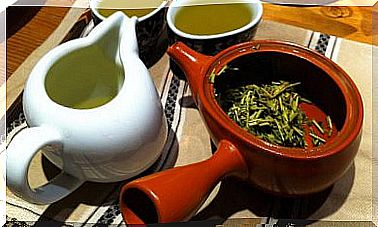Foods Rich In Lysine: What Are They For?
Lysine is one of the so-called “essential amino acids”. We tell you what it is for and in what foods you can find it. In this way you can improve your contribution.

Lysine is an essential amino acid that the body needs, among other things, for calcium to be absorbed properly. As you can see, its intake is very important. For this reason, we want to share with you the main foods rich in lysine.
Join us to discover what lysine really is, what it is for and in what foods you can find this essential amino acid. You are ready? Take note!
What is lysine and what is it for?
As we have anticipated, lysine is one of the nine essential amino acids, which receive this name since the body cannot produce them but we must ingest them through food. Lysine in particular is essential because it helps the body with the following:
1. Absorb calcium

Lysine is one of the three amino acids that make up collagen, one of the main components of bones. In addition, this would help calcium be absorbed correctly and reduce its excretion through the kidneys.
According to research published in the journal Colloids and Surfaces , regular intake of lysine is capable of increasing bone strength, thus improving bone health.
2. Protect against cold sores
Cold sores are caused by the herpes simplex virus type 1 (HSV-1) and can occur in a stressful situation or when the immune system is weakened.
According to the conclusions of some studies, it is inferred that lysine blocks the arginine that HSV-1 needs to multiply, thus reducing the duration of the mouth ulcer.
In any case, there are several factors that influence both the transmission and the development of this type of virus. Once contracted, the role of food in its management seems quite limited.
3. Block stress and reduce anxiety
Research suggested that lysine supplementation could help reduce anxiety and stress levels, and concluded that women who had consumed lysine-enriched flour for three months had lower cortisol levels than their usual diet.
Currently, studies are being carried out in people with schizophrenia, as it is believed that the combination of the medication with lysine could help improve the symptoms of the disease. However, there is still no conclusive data in this regard.
4. Help wound healing

We have already mentioned the role of lysine in collagen formation. This protein has a predominant role in the skin and bones. For this reason, some studies indicate that lysine may help heal wounds by increasing the number of new cells and the formation of blood vessels.
5. Help insulin resistance
In 2009, a small study suggested that lysine consumption could improve the glucose profile in people with diabetes. The information is not conclusive and more studies are needed in this regard.
Foods rich in lysine
Now that you know the benefits of this essential amino acid, we will present you the foods rich in lysine that you should include in your weekly diet:
- Legumes : due to their great contribution of protein, legumes should be part of the usual diet, being consumed between two and three times a week. In addition, they provide lysine, carbohydrates, fiber, calcium, potassium, zinc and magnesium. Include soy-based products in your diet, such as tofu or milk, lentils, beans, and hummus.
- Vegetables: such as potatoes, beets, leeks, and green and red peppers.
- Fruits: like avocado, tomatoes, mangoes, apricots, and pears.
- Nuts, seeds and grains : these include quinoa, pistachios, pumpkin seeds, cashews and macadamia nuts.
- Fish, oysters, shrimp and snails.
- Eggs.
- Yogurt, milk and butter.
- Beef, pork and chicken.
Include all these ingredients in your regular diet to ensure that you meet the amino acid needs.
Increasing lysine in your diet could be good for your health
If you want to add more lysine to your diet for any reason, consult a nutritionist. The specialist will design a balanced diet according to your caloric and nutritional needs.
According to the results of current studies, although there is no evidence indicating that lysine supplementation is beneficial, an adequate supply of said amino acid is essential to guarantee a correct state of health.









